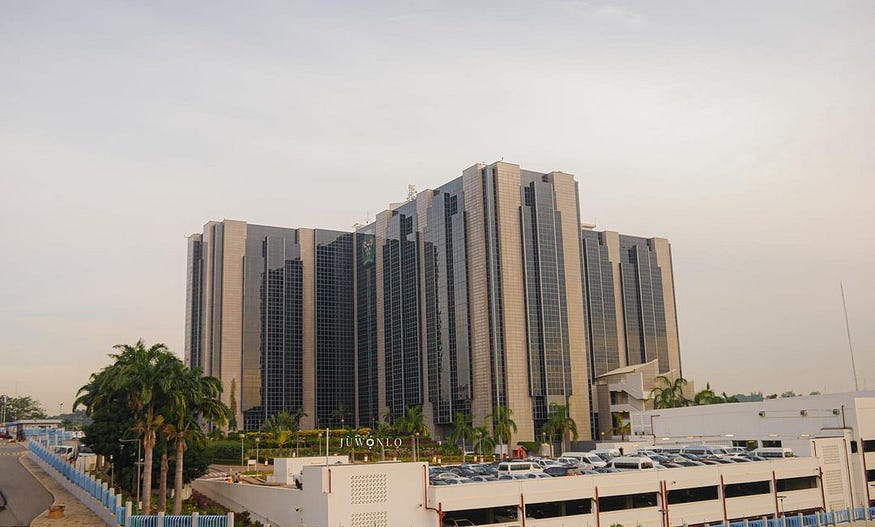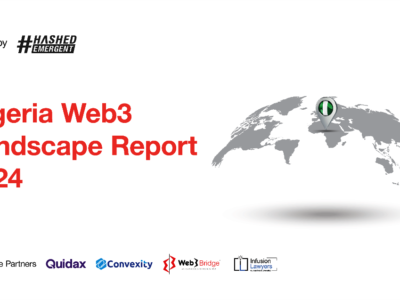By Tolu Grey
Nigeria’s digital banks are trapped in a regulatory maze designed for a different era. While these companies serve millions of customers through smartphone apps and digital interfaces, they’re forced to operate under licensing frameworks created before the iPhone existed.
RELATED: Zenith Bank’s online platforms crash, customers frustrated amid frequent digital banking disruptions
Nigeria’s digital banking sector is staying alive despite these constraints, offering financial services to a population eager for alternatives to traditional banking. Yet these fintech pioneers find themselves caught in a regulatory labyrinth that was designed for brick-and-mortar institutions, hindering their growth and potential. The mismatch between their digital-first operations and conventional licensing requirements prevents these institutions from fully realizing their potential.
This regulatory conundrum isn’t unique to Nigeria. Globally, regulators are grappling with how to oversee digital banks effectively. While some countries have created new licensing categories, others insist that they squeeze themselves into traditional banking frameworks. The choice between these approaches has implications for the ability of digital banks to scale.
Brazil’s Nubank has amassed over 100 million customers in a little over a decade. It is the largest digital bank outside Asia and among Latin America’s five largest financial institutions by customer base. However, it does not own a full banking license in Brazil. The company says it is not a bank but a payment institution and refers to itself as Nu in most of its branding. Yet, it is widely referred to as a bank and has not faced regulatory scrutiny for it. Nubank’s legal name is Nu Pagamentos S.A (Pagamentos: Payments) and it is currently in the process of acquiring a full banking license in Mexico via Nu Mexico.
Chime in the US is not as lucky. Regulators asked it to desist from implying that it was a bank, as it lacked a bank charter. With the US government getting tough on banks partnering with fintechs over compliance, Chime is in a tight spot as the US has no separate licensing for digital banks.
These cases highlight the varied responses of regulators, underscoring the importance of understanding the current landscape of digital banking regulation to see how similar challenges shape opportunities — and limitations — for Nigeria’s digital banks.
Digital Banking Regulation: The Current Landscape
Banking in most countries, including Nigeria, is a long-established industry with large players and a high barrier to entry. It is also one of the most regulated industries — rightly so. Banks require significant capital and technical expertise to operate, which is partly responsible for the rarity of new banks, as the initial requirements are significant. Digital banks’ competitive advantage globally lies in their ability to operate without traditional banking infrastructure. But, when regulation enters the picture, it shapes what digital banks look like.
Globally, two distinct approaches to digital bank regulation have emerged:
Traditional Licensing: The One-Size-Fits-All Approach
Here, digital banks get a license from among the existing banking licenses — or payment licenses. This approach, which maintains the status quo, favours existing banks by subjecting digital banks to the same regulatory framework, offering them no distinct advantages.
Some countries like the UK, offer a phased approach to full bank licensing, allowing digital banks to slowly inch their way to a full license. Revolut has spent three years in this process, acquiring a “restricted” license this year, joining Monzo who has held a license since 2017 after a restricted license in 2016.
Since there is no uniformity in laws and requirements for a banking license across jurisdictions, the interest in a bank license from fintechs varies from one country to another. Adyen, a Stripe competitor from Europe, holds a banking license in the EU, UK and US. But its US license is not a national bank charter but a branch license.
Digital-First Licensing: The Specialized Framework
Here, regulators create new regulatory guidelines for digital banks. It is an emerging trend in Asia and has been toyed with in the US. Its Office of the Comptroller of the Currency (OCC) began working on a new bank charter for fintechs but got halted by a court ruling that it was acting outside its jurisdiction. A national bank charter in the US can take up to two years to get. For Varo Money (the first consumer fintech to get a charter), it took three years and cost $100 million.

While a new banking license in the US may have hit a roadblock, the Asian experience is promising. China (Mainland, Taiwan, Hong Kong), Philippines, Malaysia, Singapore and South Korea have attempted to create separate licenses for digital banks; called internet or virtual banks in some countries. However, the specifics differ in each country.
Digital banks created by a group of companies are a popular model in Asia. Prominent among them are WeBank created by Tencent and some other companies, and MYBank led by Ant Financial. The consortia approach is in part a response to regulatory requirements for digital banks. The capital requirements for digital banks and traditional banks in Singapore, Taiwan and Hong Kong are the same while China Mainland has a higher capital requirement for digital banks compared to traditional banks — no, it is not a typo.
Square Pegs, Round Holes: The Regulatory Mismatch Facing Digital Banks
So far, there has been no consortia-style digital bank in Nigeria, unlike Asia and Europe. However, entities that launched as payment or credit fintechs have rebranded as digital banks. Nigeria’s regulatory framework does not account for the possibility of being digital-first, or even, digital-only. This means that innovators looking to launch such products will either be illegal or find workarounds within the current regulatory regime.
MFB License: The Temporary Shelter for Digital Banks
To stay compliant, digital banks have found a home in an 18-year-old license, the microfinance banking license. An extensive overview of this license and why it is attractive is not covered but evidently, it allows fintechs to become banks without going after a commercial banking license.
While some companies like Paga have taken the mobile money operator (MMO) license, the popularity of the MFB license is hard to ignore. The MMO license has no location restrictions, but The MFB license has a tiered structure, restricting each tier’s operating location. The differences between the MMO, MFB, and Payment Service Bank (PSB) licenses can be found here.

Some believe larger digital banks are mature enough to obtain a commercial banking license. It is doubtful if the plans outlined by these fintechs in their pitch to investors for funding include becoming another traditional Nigerian bank. Here’s a breakdown of the percentage of their last funding round that would be required by some neobanks to meet the minimum capital requirement for a national banking license (It costs $125 million at an exchange rate of $1/₦1600).
A National Banking License is out of reach for Digital Banks
At ₦200 bn ($125 mn), the minimum capital requirement for the license is high, even for well-funded digital banks
| Chipper Cash* | 150M | 2021 | 83 | None |
|---|---|---|---|---|
| Fairmoney | 42M | 2021 | 298 | 83M |
| Kuda | 55M | 2021 | 227 | 70M |
| Moniepoint | 110M | 2024 | 114 | 15M |
| Opay | 400M | 2021 | 31 | None |
The regional and international banking licenses are not considered as the former is restricted to geopolitical zones (digital banks already operate nationwide) and the latter is beyond their needs, leaving the national license on the table.
While Opay and ChipperCash have no funding shortfall, allocating 31% and 83% of their funding to licensing concerns is not a business proposal any serious investor will fund. Of course, this is a back-of-the-envelope calculation and omits several considerations but it does poke holes in the pro-commercial banking license argument.
The MFB license is not cheap either. The CBN mandated recapitalization for MFBs between 2019 and 2022. Only well-funded entities can launch a digital bank via this route and with the average seed funding for African startups at $1.7m, a national MFB license is beyond reach.
Capital Requirement for MFBs is a High Entry Barrier
With the average seed funding for African startups at $1.7m, the MFB license is expensive for a new entrant
| Tier 2 Unit | Operate only in rural, unbanked and underbanked areas. Can have only one branch outside its head office, ad both must be in the same LGA | 50M | 31.3K |
|---|---|---|---|
| Tier 1 Unit | Operate only in urban and high density areas. Cannot have more than four branches outside its head office in more than five contiguous LGAs | 200M | 125K |
| State | Operate only in one state or FCT. Cannot have more than one branch in an LGA unless it has branches in every LGA | 1B | 625K |
| National | Operate in more than one state including FCT. Cannot commence operations with more than ten branches | 5B | 3.1M |
In 2021, Blueridge MFB (Opay), Kuda, Carbon, and Sparkle held Tier 1 Unit licenses, while Fairmoney held a Tier 2 Unit license. Unit licenses are location-bound but being digital-first means these banks can have customers in every part of Nigeria — revealing the inadequacy of the MFB license for digital banks. While no digital bank held a national MFB license in 2021, the CBN’s website does not have an updated list to verify if this has changed.
What then is the fate of digital banks that do not take an MFB or MMO license?
The BaaS Pathway: Substituting Gold for Brass
In 2023, customers at Brass, a digital bank for businesses, began struggling with access to funds. This continued into 2024, with its then-CEO blaming “the funding winter and the economic situation in Nigeria”. This was followed by bridge financing and eventually an acquisition. In all of this was a self-named bank without a banking license, not MFB, MMO, or any payment license.
Per its website, Wema and Titan Trust provide banking services. Legal documents on its website indicate that Brass has repeatedly switched banking providers from Bancorp MFBank (license revoked in 2023) in 2020 to Wema and Sterling in 2021 (accounts maintained by Brass and Banc Corp), before settling for its current providers. Technically speaking, Brass is piggybacking on a bank’s license via Banking-as-a-Service (BaaS). This bank wrapper approach is prevalent with startups providing USD accounts to businesses and retail customers in Nigeria.
For digital banks in Nigeria, BaaS is evidently an anomaly. Interestingly, Anchor, a BaaS startup does not hold any license just like OnePipe, another BaaS provider. Both companies have partner banks whose APIs they leverage, making them appear as BaaS bundling services, with the banks as the real BaaS providers — Sterling, Wema and Providus are the most popular options. This distinction is important as BaaS providers typically own a banking license.
“Anchor and featured customers are financial technology companies and not a bank. Banking services are provided by our partner banks who are duly licensed by the CBN”.
Bloc; a BaaS provider that expanded to business banking, initially took the Brass approach — working with partner banks. In November 2023, it received an approval-in-principle for an MFB license. However, its Bloc MFB is not listed with the CBN. Three possible explanations; the license has not moved from the AiP stage yet, Bloc has shut down (no activity across its social since June), or the CBN’s MFB license list is not updated.
This bank-wrapper approach of Brass is similar to Prospa, whose customers were struggling to withdraw funds earlier in the year. TechCabal’s June report says Prospa partnered with Wema Bank and Parkway before moving to Goodnews MFB. It cannot be verified if Brass and Prospa operate within the CBN’s regulatory sandbox as it does not publish a list of participating entities. What is clear is the existing regulatory regime has blind spots.
The CBN urgently needs to redesign its website and update its list of license holders, to provide clarity on what each license entails and who holds them. Regulatory clarity is essential for new license seekers and industry observers.
Beyond Regulatory Workarounds

“In the startup world, momentum is everything. Anything that slows you down doesn’t just slow you down — it kills you by stopping you from reaching escape velocity”
— Andreas Klinger, co-initiator of the EU Inc proposals and Investor at Prototype Capital.
Nigeria’s digital banking sector stands at a crossroads. The current regulatory framework, with its reliance on MFB licenses and banking-as-a-service arrangements, has enabled innovation — but at a cost. Digital banks remain constrained in their service offerings, while regulators lack proper oversight tools designed for digital-first operations.
The experiences of Brass and Prospa — digital banks struggling with customer withdrawals while operating through bank partnerships — highlight the risks of maintaining the status quo. Meanwhile, the success of digital banking frameworks in Asian markets offers a compelling alternative path.
The CBN’s tiered licensing for MFBs and Commercial Banks is a precedent that can shape how it approaches digital banking. Three key considerations should guide Nigeria’s approach to digital bank regulation:
- Capital Requirements: Traditional banking licenses, costing ₦200 billion for national coverage are unrealistic for digital banks. A new framework needs to balance prudential requirements with the lean operational model of digital banks.
- Operational Flexibility: Current licenses either restrict operations geographically (MFB) or limit service offerings (MMO). Digital banks need a framework that acknowledges their nationwide digital presence while ensuring proper risk management.
- Consumer Protection: As Brass and Prospa’s challenges show, clearer regulations around partnerships and customer fund protection are essential.
The CBN has demonstrated a willingness to innovate with its six digital payment license categories. The next logical step is a dedicated digital banking framework that protects consumers, enables innovation, and ensures proper oversight. The alternative — watching digital banks contort themselves to fit outdated regulations — risks stifling the subsector.
The question isn’t whether Nigeria needs a new digital banking framework, but how quickly it can implement one that works for all stakeholders.
PS: A clap ensures the article reaches more people. Leave one if this was worth your time 🙂
Interested In Further Reading? Here You Go
Alatovic, T & Cunha, L. (2021). ‘Lessons from the rapidly evolving regulation of digital banking’. McKinsey & Company. Available at: https://www.mckinsey.com/industries/financial-services/our-insights/lessons-from-the-rapidly-evolving-regulation-of-digital-banking
Central Bank of Nigeria. (2022). ‘Circular to Microfinance Bank Stakeholders and the General Public’: Exposure Draft of the Guidelines for the Regulation and Supervision of Microfinance Banks in Nigeria (3 March 2020). Available at: https://www.cbn.gov.ng/out/2020/fprd/mfb%20regulation%20draft%20merged.pdf
Kerse, M & Staschen, S. (2021). ‘Digital Banks: How can they be regulated to deepen financial inclusion?’. Slide Deck. CGAP. Available at: https://www.cgap.org/sites/default/files/publications/slidedeck/2021_12_Slide_Deck_Digital_Banks_Regulation_for_Financial_Inclusion.pdf
Okosun, E. (2024). ‘The Legal Framework for Establishing a Microfinance Bank in Nigeria’. Omaplex Law Firm. Available at: https://omaplex.com.ng/the-legal-framework-for-establishing-a-microfinance-bank-in-nigeria/
Timi-Koleolu, S & Best, E. (2024). Licensing Requirements for Banks and Other Financial Institutions in Nigeria. Pavestones Legal. Available at: https://pavestoneslegal.com/licensing-requirements-for-banks-and-other-financial-institutions-in-nigeria/

































